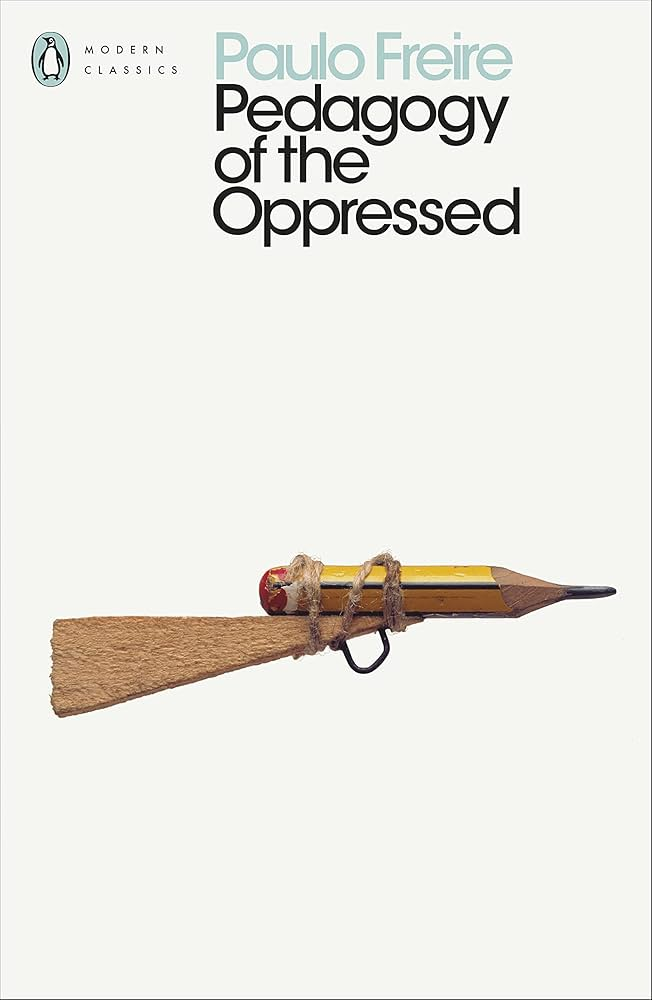Been seeing more and more evidence that mass literacy is both massively diminished compared to the 20th century and accelerating in its decline across the world, especially in relatively highly educated countries. This problem is obviously much more severe amongst the working class than others, as historically tends to be the case.
If we want the masses to get to grips with a communist understanding of the world, which requires a lot of reading and discussion of text, surely this is an issue we need to grapple with. Current political education initiatives usually bring together smaller, highly-literate (typically university educated) groups of people, which tend to remain insular and rarely seem to engage with the broader working class. I am convinced that a significant barrier to mass political education is that so many “literate” people are unable to read a simple paragraph.
How do we rectify this situation? It seems historically unique because in the past, illiterate people had no illusions about the fact that they couldn’t read and were enthusiastic about learning (at least, in general). Nowadays, I can imagine that most people would not view their literacy as something that needs to be improved, and many will even react with hostility to such a suggestion.
What’s the correct approach? Do we need to emphasise the practical rewards that those who engage with theoretical texts benefit from? Take a direct approach and offer reading comprehension sessions? Interested to hear what others think.
If you read a ton of theory but cannot communicate it to people who haven’t read theory, did you actually understand what you read? If you are just vomiting up vocabulary words and definitions and long quotes and then expecting the people you’re talking at to suddenly “get it” you are wrong.
First step is getting the theory into your own brain.
Second step is looking around and seeing how the theory applies to the reality around you.
Then you should be better able to move onto the third step of talking about theory to the another person who hasn’t learned or connected their reality to those theories described in the past. You’ll be able to update the language to be easier to talk to people alive today.
Didn’t we hold a Pedagogy of the Oppressed reading club a while back? Even if we did, maybe it’s time we do one again.
Paulo Freire was a well-read, educated, deeply intellectual man, often working to organize workers in conditions of complete illiteracy, not only functional illiteracy. The divide between the kinds of knowledge he and his pupils had was as large as t can be while being from the same culture. Because of this experience, and because of all his education, his thought evolved into a dialectic of co-creation of knowledge rather than of mere instruction and imposition of knowledge from the “more” knowledgeable part to the “less” knowledgeable one.
Reading theory is a good thing, don’t get me wrong, and since many of us enjoy it (because we’re nerds), we tend to forget there are other forms of knowledge and education available, and that we should use them. Good ol’ 'theory-informed praxis".
In conclusion: those of us who are physically/mentally able to go outside, rub elbows with the people most brutalized by capitalism, and really listen to what they have to say, should do that. It can take the form of volunteering to teach more “practical skills”, and not only political education, or any kind of community organizing.
Those of us who can’t, can move theory forward, too, support those on the ground, especially since there are so many ways to collaborate now compared to decades ago.
TL;DR: read Freire. Go outside (if you can) .
In my experience, teaching people who are actually illiterate is much easier than teaching people who are functionally illiterate, because functionally illiterate people will fight with you on the meaning and logic of basic instructions.
But this misses the point of what I was trying to say, or rather, what I gather Freire said throughout his work. It’s not about transmitting information from teacher to pupil, but about being a facilitator in their own liberation. If them fighting you on the meaning of stuff helps them gain class consciousness, and you can do it without negative consequences to yourself, why not? Question why is there conflict, and why instructions are necessary in education.
I will check Freire out, ty for the rec.
Pedagogy of the Oppressed
This seems like a good shout out, I’m going to try to read this soon.
Yes, barely anyone participated.
Yeah, I sort of remember that, too.
Is a book club the correct approach then?
I ask because I was just thinking this with regards to theory in general. I usually have 45 minutes of bus time in the AM and PM, and was thinking that (or shorter) would be a good time to target for both reading and responding.
One thing I think could help is almost a polemical approach (or whatever the non-confrontational version would be). Like someone who’s read the text before offers some points on a section, and then others can support/refute those. But word/character limited so it’s not an exhausting process.
Like a “bite sized” approach
This is why I believe that we need to be on tiktok and youtube way more than we are. They’re the new public square. Get people interested in communism via short form video, leveraging righteous anger and comedy both. Once they’re hooked, then send them blog post links.
If Lenin were alive today I firmly believe that he would be on tiktok constantly - and that he’d be amazing at it.
I don’t mean this to disagree with you, but I’m sure that Lenin would be banned from Tiktok pretty early. Being in social media can probably be somewhat helpful tho.
Lenin also had the spirit of an epic poster. He might get banned from TikTok but he’d still be churning out hot takes on every other social media platform he could get logged in to.
Hmm. I think we do need to level up our media strategy significantly - there are definitely plenty of individual creators on those platforms agitating and propagandising, but as they’re individual and their output isn’t linked to any broader project, there are limitations to the quality of political education and message discipline.
I suspect that getting on these platforms is necessary but isn’t enough; you’re right, social media is the new public square and the new newspaper, but something I think is missing here is that we need to have our own platforms that are democratically controlled and not subject to capitalist censorship. Hexbear (and other parts of Lemmy) might be a good example of this, but we just aren’t big enough to have any impact and we’re not growing presently either.
Where the major innovation of the early 20th century was the party newspaper, the major innovation for us could be party (or at least, working-class) social media. It’s disappointing that Mastodon is pretty inaccessible because Twitter’s downfall was a major moment of opportunity to launch something better, and instead we just got Threads and Bsky.
Social media is not a public square though. It’s literally a series of privately held companies, in privately run servers. Just because it has the appearance of a public square does not make it so. It is these kinds of misconceptions that are really harming us.
This is like saying communists should have published more in the Wall Street Journal. What we need to be attempting to do is create our own parallel infrastructure, of which thing like lemmy is a start, but we need our own social media, and ideally, our own internet infrastructure. It’s not enough to publish the newspaper you want to own the printing press.
What we need to be attempting to do is create our own parallel infrastructure
Very hard to do when you dont own capital
Yet that’s generally what needs to be done. You couldn’t borrow one of William Randolph Hurst’s printing presses to print your commie newspaper back in 1902. Perhaps we shouldn’t expect a commie chat show to ‘win’ the YouTube algorithm and beat all of the fascist and reactionary chat shows that have dominated political discourses on the platform.
Correct. And yet it is what needs to be done to even get and maintain a real foothold of effective radical leftist politics. It’s all very hard, but becoming a revolutionary is the hardest thing for any individual to ever do.
There is some precedent for this sort of thing. Being some in ham radio, I’ve worked with and learned about a few different emergency communications systems. And some that are unrelated to ham radio. An interesting project is I2P, but it mostly just piggy backs onto the main internet. Mesh networks are closer to your “our own internet” idea, but they would need to he fairly widespread to be effective. There’s Meshtastic which is an existing mesh network using LoRa tech. Each channel has its own encryption key, and for peer to peer, comms are end-to-end encrypted. There are public channels (which just uses a null encryption key like AA== or something) but if you specify a key, only users subscribed to the same channel with the same key can use that channel. You could technically set up a TCP/IP network over Meshtastic, but it’d be ridiculously slow. But an upside is that there’s already a lot of people and infrastructure using Meshtastic, so you already have a difficult part of building a mesh network done. Unfortunately to guarantee full coverage, you’d have to use an internet gateway to link distant users. There are other mesh networks, but most of the ones I know about use ham radio bands which, legally, need to be unencrypted. (at least in the US) And if you were to try to encrypt comes, nosey hams will be able to track you down and report you. And that’s not a vague threat, a lot of hams are just chomping at the bit to track down violators.
I have been thinking about this recently and even considering trying to create educational content.
Just reading about how Wretched of the Earth/Fanon influenced so many people, i was thinking about how the ideas in the books themself just need to be propagated outside of the book (which they are, but it needs to be done more and in digestible ways for the modern day mind) it made me think we could be missing all these potential new movements just because of book reading diminishing
 Both. There’s more than one way to hug a cat.
Both. There’s more than one way to hug a cat.Encouraging and teaching literacy are incredibly important. Historical communist movements have focused on literacy campaigns as major aspects of their programs.
But meeting people where they’re at is also really important. Reading to people or teaching direct courses on things like civics, labour organizing, or community defense have also been really successful strategies.
We need to up our Edutainment game. We need more communist science communication YouTubers and infographics chart sites and rec center class teachers.
There’s more than one way to hug a cat.
thats an awesome twist on that saying

I also like:
- feeding two birds with one scone
- or the silly version: getting stoned with two birds
But meeting people where they’re at is also really important. Reading to people or teaching direct courses on things like civics, labour organizing, or community defense have also been really successful strategies.
This! Lenin didn’t lock himself in a room for his entire career and limit himself to academic jargon, he went out to the streets and the factories and he spoke to workers directly. We need the academics certainly. But meeting the people where they are both physically and linguistically is vital.
We need to up our Edutainment game.
CPC should take over Tencent and start spiking the content with some communist propaganda. Why thay aren’t doing so yet is a mystery for me.
Whenever this gets brought up, I think of the Bill Haywood quote, “I’ve never read Marx’s Capital, but I’ve got the marks of capital all over my body.” Yeah, if you start in with bolts of linen to coats and exchange value versus use value, someone whose reading comprehension is at an 8th grade level is just gonna tune out. Praxis needs to be presented in a way that’s applicable to people’s everyday lives. Which honestly, isn’t hard because socialist political economy is fundamentally about how everyday people get a raw deal. You show them they’re getting a raw deal, then show they can get something better, simple as that.
Like, if you wanted to impress upon someone the benefits of a car, you wouldn’t start by discussing the physics equations used in determining the force generated by internal combustion or drawing a diagram to explain a differential. You would start with, it’ll get you from here to there fast and comfortably. Likewise, it’s better to start with “Doesn’t it suck that your boss pushes you around? Well that wouldn’t be an issue if you and your coworkers picked the boss instead of some corporate suits that never see your office” than starting with a discussion of Hegelian materialism versus idealism.
which is why people should jettison jargon whenever they explain something. communist ideas are explainable in different frameworks to 10 year old (even with those stupid cows), drunk 45 yeard old mechanics or nuclear engineers. they can think either “it wont work” or “i’m fine, thanks” or whatever, but communication is not the problem, upside is the problem (in imperial core at least, in global south - downside is the problem)
Thankfully it’s bringing us closer to historical revolutions. We teach people reading comprehension through Lenin. Phonics tutors are the vanguard of the revolution
Historically people were uneducated. Now they are mis-educated.
People were pretty miseducated historically, too.
Only makes the job of reading comprehension more important imo
https://en.wikipedia.org/wiki/Cuban_literacy_campaign
Most agrarian revolutions made literacy a core component so they could educate people. It’s more than one way to do it, but why not empower comrades to read?
Women in Cuba: 20 Years Later by Margaret Randall is a great read on the Cuban Literacy campaign and a whole bunch of other programs the Revolution brought about.
I love this book! Particular highlights for me were them concretely acting on a material understanding of patriarchy. That is, patriarchy is materially the domestic enslavement of women and a key lever to break that is to socialize domestic labor which is why precious foreign reserves were used to import washing machines even as the mechanization of agriculture was pressing.
It’s really good, right! I keep meaning to read more of her work. I was blown away by the literacy campaign. The absolute scale of what they accomplished was mindblowing. Also, while it was more of a footnote in comparison, I found the therapy/theater hybrid work to be really interesting.
Ooh, I don’t remember that aspect. Another book I found insightful into the struggle against patriarchy and machismo was ‘Lavender and Red: Rainbow Solidarity in Defense of Cuba’ by Leslie Feinberg. It covers the struggle for gay and trans rights and particularly the humane, material response to the AIDS crisis and the public mea culpa and apology Fidel made for his earlier naive homophobia.
Awesome! Adding it to my list, thank you!


I just read that a few months ago, and while I appreciate his disdain for using propaganda, it feels kind of naive when facing a population that’s on a 24/7 drip feed of consent manufacturing.
Admittedly, I’ve got like zero background on Dialectics. So I’m planning to do some studying before giving it another read.
Been seeing more and more evidence that mass literacy is both massively diminished compared to the 20th century and accelerating in its decline across the world, especially in relatively highly educated countries.
Sorry if this is off topic, but its very strange how so called “highly educated countries” have been experiencing drops in mass literacy, why would this be?
Because the capitalist class needs to find ways to make up for their falling rate of profit, and the only tool available to them within the US is to swallow up and/or destroy public services. By wielding bourgeois politics to reduce their tax rates they force important social services to go underfunded. When those underfunded services fail to deliver for the public, the capitalists can then use that as justification for privatizing those services, swallowing up their assets and employees at low cost, squeezing them for a big short-term injection of profits, and then dumping those ruined services. All public goods become first degraded, then privatized, then destroyed - in the end, this only further contributes to the declining rate of profit, because public goods and services (from education to parks to transit and on and on) improve the productivity of the working class. But investing in them directly reduces short term profits and cannot compete with the rapid profits available through the above destructive process.
Add in the racial/colonial aspect of American society and it becomes easier and easier to propagandize that process because you can just blame Black people.
From what I gather, the issue is not so much illiteracy in the absolute, can’t read anything kind of illiteracy. It’s more so the kind of comprehension literacy where people can read things but they lack the skills to get the deeper meanings and understand the unified arguments and implications in longer written pieces.
Part of this might be the emphasis on shorter and shorter media content. However, I think the educational shift to more standardized tests and hyper focusing on STEM is a large part of the problem. Reading and reading comprehension is less emphasized, it gets more segmented to smaller pieces as to fit the test format more neatly, there’s less exploratory reading to naturally grow that skill set.
deleted by creator
It has nothing to do with theory ,do you think we people who come from the global south became Marxists because we read Marx ? Don’t get me wrong we learned from him of course and many people in the global south have read him (the co founder of Islamic jihad allegedly did) but more than theory ,it’s our lived experience ,literacy has absolutely nothing to do with it ANYMORE ,certainly not in “developed” countries ,some of the biggest supporters of communism were peasants and came/come from the peasantry
There is no reason to use big words ,liberals make fun of trump for this but his limited vocabulary in his speeches clearly connects with his followers and it works
Yes you should explain stuff like the falling rate of profit but you shouldn’t quote Marx directly ,you should use words an 8 year old kid would understand
The problem in the west is literacy comprehension ,you don’t control the system so you can’t fix it right now
What you can do it get around it by saying the stuff the miseducated people understand
Teach by doing.
This is one reason why I want to build urban communes: because the comparison effect/“keeping up with the Joneses” kicks in, and this is particularly strong in America. If you see people having a far superior quality of life on lower income/less expenditure, you’re going to envy them and have an inclination to imitate them.
With 30 people you would probably have enough to buy up most of the houses on a city block, collectivize them, turn the backyards into one big yard, have 3 cars for every 10 people instead of 9, have massive time and money savings on food prep, discover untold flexibility and capacity for child care, and make better use of everything you own.
When you accomplish this, you are still not bending the capitalists to your will. And the process of doing this might invite the jealous and normative/conformist wrath of people in the settler mindset or even of sticklers. Depending on how flagrantly you break ordinances, it might cause a fight with the city. But some conflicts are useful for accumulating your energy and will to fight. It’s even possible that the collective mode might be more thoroughly outlawed than it already is. But doing it will be a huge aid to the working class. If you build it, they will notice… and the bases of material support that revolutionary forces rely on aren’t just going to appear out of nowhere.
I too long for the urban communes
My people will bump/set, so that your people can spike.

Do people in these countries even aspire to literacy anymore?
yes it’s the illiterates fault for not learning to read
I see how that came across that way, it’s definitely not what I mean. I mean have we as a society subverted the aspiration to literacy so thoroughly by smoothing everything over with automated digital systems that “we will teach you to read” is not even an appealing pitch?
oh yeah that makes more sense, i thought it was some “americans are dumb” cheapshot gone awry

















